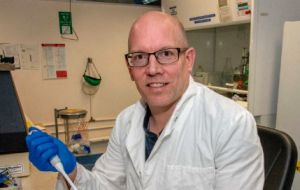MercoPress. South Atlantic News Agency
Microscopic parasite could be affecting food chain near Antarctica
 “We've sort of been modelling these populations and looking at the ecosystems without including parasites as a variable,” said Deagle.
“We've sort of been modelling these populations and looking at the ecosystems without including parasites as a variable,” said Deagle. A tiny parasite is leading Australian scientists to rethink how they view Antarctic food chains, after a research showed these microscopic organisms were present in quantities far larger than previously thought, it was reported Monday.
The syndiniales parasite is to be found in water samples from areas of the world's oceans in numbers of about 1 percent of marine life. But in the Southern Ocean near Antarctica, researchers from the Australian Antarctic Division (AAD) have found the plankton-killing parasite in unprecedented levels - up to 50 percent of living matter in samples.
Dr Bruce Deagle from the AAD said the discovery changes experts' understanding of those ecosystems. “We've sort of been modelling these populations and looking at the ecosystems without including parasites as a variable, and the impact of those parasites,” Deagle explained.
The syndiniales parasite exists inside phytoplankton and once it has infected a cell, it will eventually kill it, while the cell will burst, and go on to infect other cells. Given that krill rely on plankton for food, and whales and other animals feed on the krill, the presence of the parasite may have unknown effects on the broader food chain structures of the cold Southern waters.
“All of those larger organisms do depend on the energy that's coming from the phytoplankton,” Deagle said.
”This (research) is providing a new factor that really does affect the productivity of that whole ecosystem and the base of the food web - so exactly how that impacts is something that we are going to have to find out,” he added.



Top Comments
Disclaimer & comment rulesCommenting for this story is now closed.
If you have a Facebook account, become a fan and comment on our Facebook Page!